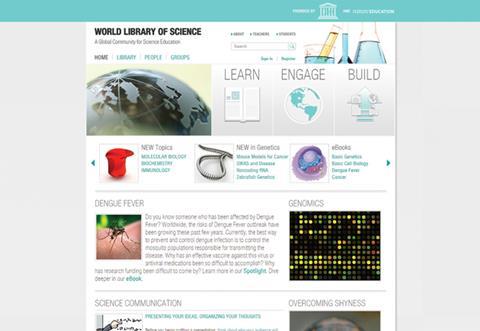www.nature.com/wls

UNESCO has joined forces with Macmillan Science and Education to provide free online access to the content of Nature Education, providing ways for it to be used creatively by educators worldwide.
World Library of Science content primarily relates to life sciences, particularly genetics and cell biology. Of particular interest to me was the site’s facility for registered users to create either their own ebook or ‘classroom’. An ebook is constructed using articles and video clips, to which the creator can add comments. A classroom is similar, but a little more virtual learning environment (VLE)-like, with hyperlinks, announcements and a discussion forum. Classrooms and ebooks can be tagged as either private or public and the site will create a unique URL to share with your students. I wonder if the Royal Society of Chemistry would consider doing something similar? There is so much amazing content on Learn Chemistry, letting teachers construct their own bespoke online classroom of resources might be a tool teachers would appreciate.
The student page on this site features two ebooks. One is a comprehensive tutorial on communication skills for scientists, dealing with both written and oral communication. This contains several instructive examples, with a self-assessment activity at the end of each chapter. The advice is presented clearly; if your students are writing reports or preparing presentations at any level, then I would recommend using this ebook as part of a flipped learning approach.
The other ebook looks at scientific careers. It does more than simply list possible career options with a ‘have you ever thought of ... ?’ approach. Instead it encourages students to start by evaluating their own motivations, skills and interests. It then looks at what the next steps might be. As a tool for young people in education who may struggle to form an accurate view of a sector with so many career options, this has a lot to recommend it.









No comments yet